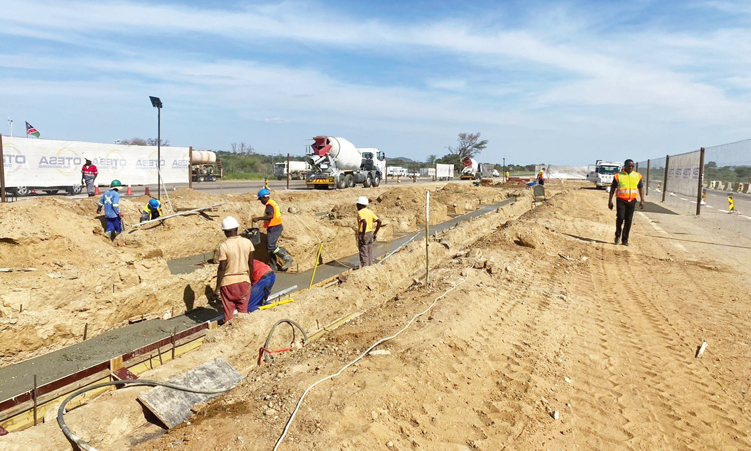HOPES of regional consensus on economic partnership agreements (EPAs) with the European Union were shattered when a watershed meeting between trade ministers in Botswana ended in a deadlock, with Namibia, represented by Minister Hage Geingob, one of the countries still refusing to sign the controversial deal.
According to the Angolan Press Agency (Angop), Angola, Namibia and South Africa, forming the bargaining block ANSA, stuck to theirguns in Gaborone last Wednesday and insisted that negotiations continue until a ‘fair and equilibrated accord’ is reached. In the opposite camp were Botswana, Lesotho, Mozambique and Swaziland, who have already concluded interim EPAs with the EU.The clock is ticking for the EU, which would like to see at least the interim EPAs signed before year-end when current EU Trade Commissioner Catherine Ashton’s term of office runs out.Angop refers to a ‘press note’ that the Angolan embassy in Botswana issued after the one-day meeting of the trade ministers of the EPA Group of the Southern African Development Community (SADC).It quotes the Angolan Minister of Commerce, Idalina Valente, who defended her country’s stand on EPA, saying that the agreement should be fair and balanced, and should have the consent of all parties.’According to the note, South Africa and Namibia assumed a similar position to Angola, being that the three countries assured the continuation of talks until the conclusion of a fair and equilibrated accord and, in the case of Angola, that meets its development agenda,’ Angop says.On the other hand, Botswana, Lesotho, Mozambique and Swaziland indicated that they are willing to sign full EPAs with the EU, Angop says.Nobody from the local Trade and Industry Ministry’s EPA team was available yesterday to confirm the Angop report.ANSA voiced their concerns with the EPA in a letter to Brussels earlier this year. This sparked a round of negotiations at Swakopmund, during which the EU made some concessions.However, two major stumbling blocks remain: that of the Most Favoured Nation (MFN) status and the Definition of Parties (DoP). Observers have warned that the MFN clause in the existing interim EPA text might hamper south-south trade, while the DoP clause could compromise SADC’s regional integration plans.So far, Namibia has only agreed to provisionally initial the interim EPA so that it can retain quota- and tariff-free access to the EU’s markets.jo-mare@namibian.com.na
Stay informed with The Namibian – your source for credible journalism. Get in-depth reporting and opinions for
only N$85 a month. Invest in journalism, invest in democracy –
Subscribe Now!










